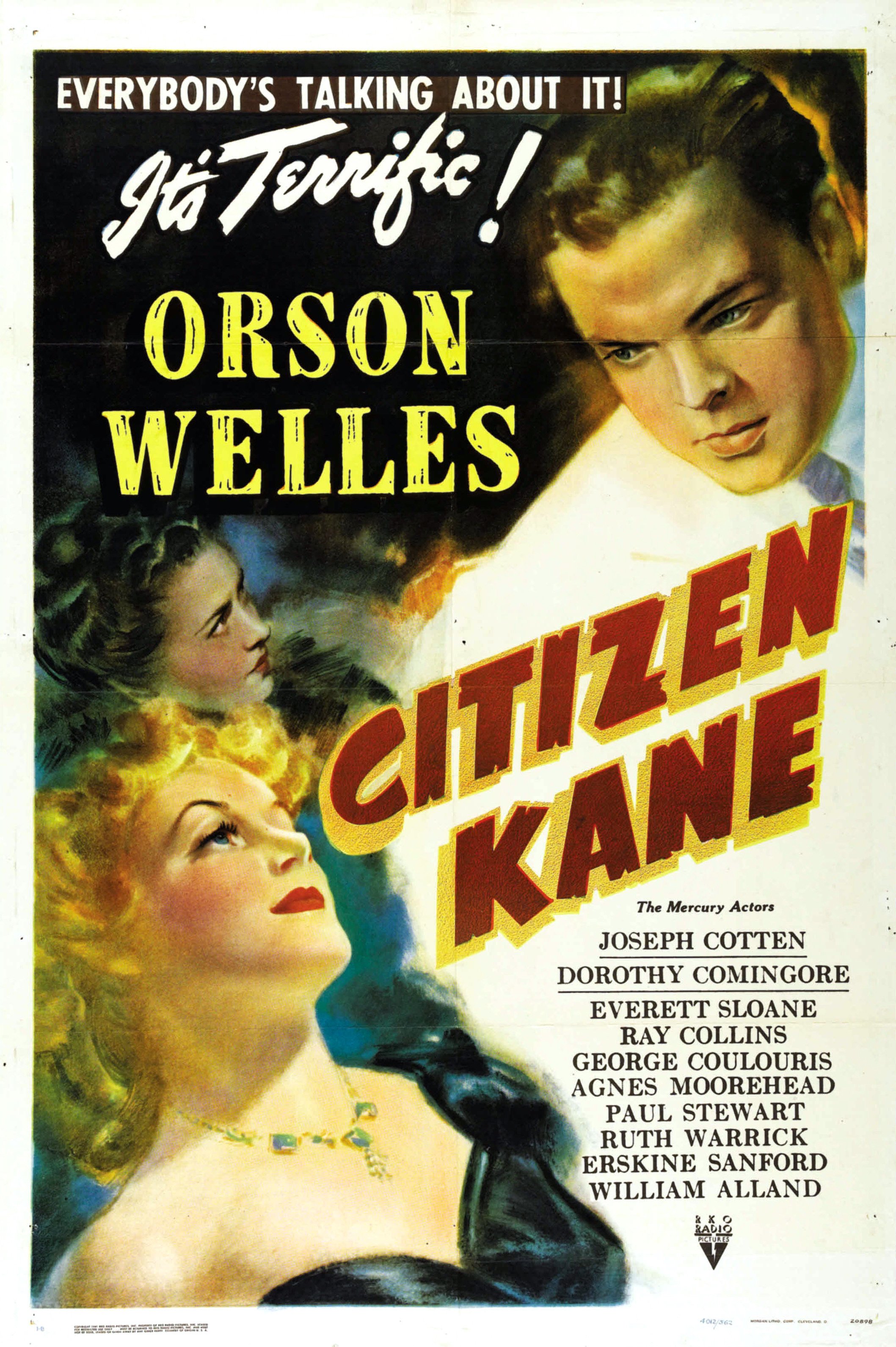Director: Orson Welles
Cast: Orson Welles, Joseph Cotten, Dorothy Comingore, Everett Sloane
Have I Seen it Before: Silly question at this point, right?
Did I Like It: I usually get a bit trigger-shy when writing up a review of any unusually iconic film. What is left to say about some films? This goes doubly for a film like this.
I could write about the story of the making of the film, arguably more famous than the film itself. In an oblique way, I probably already have. I could write about the psychology on display, but that would probably not cover the 300-word minimum of these reviews.
There’s probably a book someone (please, not me) somewhere (please, somewhere else) somewhen (please, let’s give it a few years) should write about how its allegedly Donald Trump’s favorite movie, which only really tells me that—in addition to all manner of things—the former president doesn’t understand
On that note, it’s usually not a bad idea to distrust practically anyone—save for perhaps the recently departed Peter Bogdanovich*—who claims this is their favorite film. Met with a rather infamous degree of commercial hostility on its initial release, its not hard to imagine that far fewer people have actually seen it than claim to have done so**.
So, about the film. I think Welles would be the first to admit that the story is on the main, fairly melodramatic. Big tycoon careens through his life, pretty much destroying everything he even thinks about touching, and in the end it’s largely because he never wanted to be rich and just wanted to spend a little more time with his sled.
Sad, yes. Earth shattering? Hardly. It helps that the film’s plot is constantly in a state of deconstructing and reconstituting itself, but even that only pushes the film into the unusual-but-not-quite-unique realm. Any film interested in tapping into the literary attributes of novels*** would opt for a similar structure. Kurosawa comes to mind.
The true strengths of the film, which go far beyond anything having to do with the sled lie with the technical craft on display. While the true possibility—and, clearly, the horrible potential—of silent film was ushered by The Birth of a Nation (1915) and for my money, perfected by Modern Times (1936), sound film had wallowed as not much more than turgid recordings of stage productions. See Dracula (1931) and yes, even—with all its strengths—The Great Dictator (1940). This film finally made the argument for the sound picture (barely ten years after the technology was seemingly perfected) by showing what all of the tools of cinema could do if brought to bear. Deep focus, optical printing, miniature, matte paintings, all are harnessed to tell a story not of fantasy, but of human tragedy. Few think of Citizen Kane as a special effects film, but that’s what it is. One of the key scenes where Kane (Welles) fires his old friend Jed Leland (Cotten) is heralded as a great example of deep focus, but that’s not what’s happening. The two characters are shot at different times, and optically forged together in a single frame of film. People complain about our highly technological style of making films where actors don’t ever have to be in the same room, but they’ve been innovating those methods for 80 years! It’s even COVID compliant!
That’s the film’s secret: it is a great film. It demands to be studied and learned about for its cinematic attributes. If you haven’t seen it, I’m not sure how you’ve made it this far on the site, but you should. If you’ve seen it before, it never really took hold with you, and you love cinema, then you need to see it again. And again. And read books about it. Then listen to the commentary tracks on the DVD. Go back to it as often as possible. I know I have.
*During my rewatch of the film this week, I did the regular film, and the commentary track from Roger Ebert, but somehow didn’t take in Bogdanovich’s track. May have to make amends for that sometime soon.
**I was on a podcast once where I had joked about never seeing the film. One of the other people on the panel cried, as if it finally connected us, “Me too!” They were aware of my other work. They had even reacted to my social media posts when I went to a 75th anniversary screening back in 2016. They were (and one imagines, still are) an idiot. I didn’t think that my review of this film would end up as a compare and contrast of my irritation with this person, and a few comments of Trump, but here we are, 2021.
***Has anyone ever tried to novelize Kane? Feels vaguely sacrilegious to even entertain such an idea, but it could be an interesting intellectual exercise. Let’s make that another project I should never again entertain.

